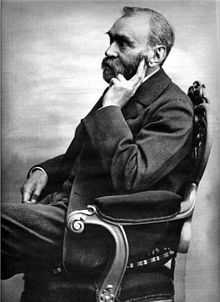| Year |
Laureate |
Nobel prize |
Life |
Education |
Notes |
| 2012 |
|
Shinya Yamanaka |
Physiology or Medicine |
1962– |
Kobe University, Osaka City University |
"for the discovery that mature cells can be reprogrammed to become pluripotent" shared with John B. Gurdon |
| 2010 |
 |
Akira Suzuki |
Chemistry |
1930– |
Hokkaido University |
"for palladium-catalyzed cross couplings in organic synthesis" shared with Richard F. Heck and Ei-ichi Negishi |
| 2010 |
 |
Ei-ichi Negishi |
Chemistry |
1935– |
University of Tokyo, University of Pennsylvania |
"for palladium-catalyzed cross couplings in organic synthesis" shared with Richard F. Heck and Akira Suzuki |
| 2008 |
 |
Osamu Shimomura |
Chemistry |
1928– |
Nagasaki University, Nagoya University |
"for the discovery and development of the green fluorescent protein, GFP" – shared with Martin Chalfie and Roger Tsien, held American nationality.[3] |
| 2008 |
 |
Makoto Kobayashi |
Physics |
1944– |
Nagoya University |
"for the discovery of the origin of the broken symmetry which predicts the existence of at least three families of quarks in nature" – shared with Yoichiro Nambu and Toshihide Maskawa.[4] |
| 2008 |
 |
Toshihide Maskawa |
Physics |
1940– |
Nagoya University |
"for the discovery of the origin of the broken symmetry which predicts the existence of at least three families of quarks in nature" – shared with Yoichiro Nambu and Makoto Kobayashi.[4] |
| 2008 |
 |
Yoichiro Nambu |
Physics |
1921– |
Tokyo Imperial University |
"for the discovery of the mechanism of spontaneous broken symmetry in subatomic physics" – held American nationality, shared with Makoto Kobayashi and Toshihide Maskawa.[4] |
| 2002 |
|
Masatoshi Koshiba |
Physics |
1926– |
University of Tokyo |
"for pioneering contributions to astrophysics, in particular for the detection of cosmic neutrinos" – shared with Raymond David Jr and Riccardo Giacconi.[5] |
| 2002 |
|
Koichi Tanaka |
Chemistry |
1959– |
Tohoku University |
"for the development of methods for identification and structure analyses of biological macromolecules" and "for their development of soft desorption ionisation methods for mass spectrometric analyses of biological macromolecules" – shared with John Fenn and Kurt Wüthrich.[6] |
| 2001 |
 |
Ryōji Noyori |
Chemistry |
1938– |
Kyoto University |
"for their work on chirally catalysed hydrogenation reactions" – shared with William Knowles and Barry Sharpless.[7] |
| 2000 |
|
Hideki Shirakawa |
Chemistry |
1936– |
Tokyo Institute of Technology |
"for the discovery and development of conductive polymers" – shared with Alan MacDiarmid and Alan Heeger.[8] |
| 1994 |
 |
Kenzaburō Ōe |
Literature |
1935– |
University of Tokyo |
"who with poetic force creates an imagined world, where life and myth condense to form a disconcerting picture of the human predicament today."[9] |
| 1987 |
|
Susumu Tonegawa |
Physiology or Medicine |
1939– |
Kyoto University, University of California, San Diego |
"for his discovery of the genetic principle for generation of antibody diversity."[10] |
| 1981 |
|
Kenichi Fukui |
Chemistry |
1918–1998 |
Kyoto Imperial University |
"for their theories, developed independently, concerning the course of chemical reactions" – shared with Roald Hoffmann.[11] |
| 1974 |
 |
Eisaku Satō |
Peace |
1901–1975 |
Tokyo Imperial University |
Shared with Seán MacBride.[12] |
| 1973 |
|
Leo Esaki |
Physics |
1925– |
Tokyo Imperial University |
"for their experimental discoveries regarding tunneling phenomena in semiconductors and superconductors, respectively" – shared with Ivar Giaever and Brian David Josephson. |
| 1968 |
 |
Yasunari Kawabata |
Literature |
1899–1972 |
Tokyo Imperial University |
"for his narrative mastery, which with great sensibility expresses the essence of the Japanese mind" – .[13] |
| 1965 |
 |
Sin-Itiro Tomonaga |
Physics |
1906–1979 |
Kyoto Imperial University |
"for their fundamental work in quantum electrodynamics, with deep-ploughing consequences for the physics of elementary particles" – shared with Julian Schwinger and Richard Feynman.[14] |
| 1949 |
 |
Hideki Yukawa |
Physics |
1907–1981 |
Kyoto Imperial University, Osaka University |
"for his prediction of the existence of mesons on the basis of theoretical work on nuclear forces"[15] |
|












